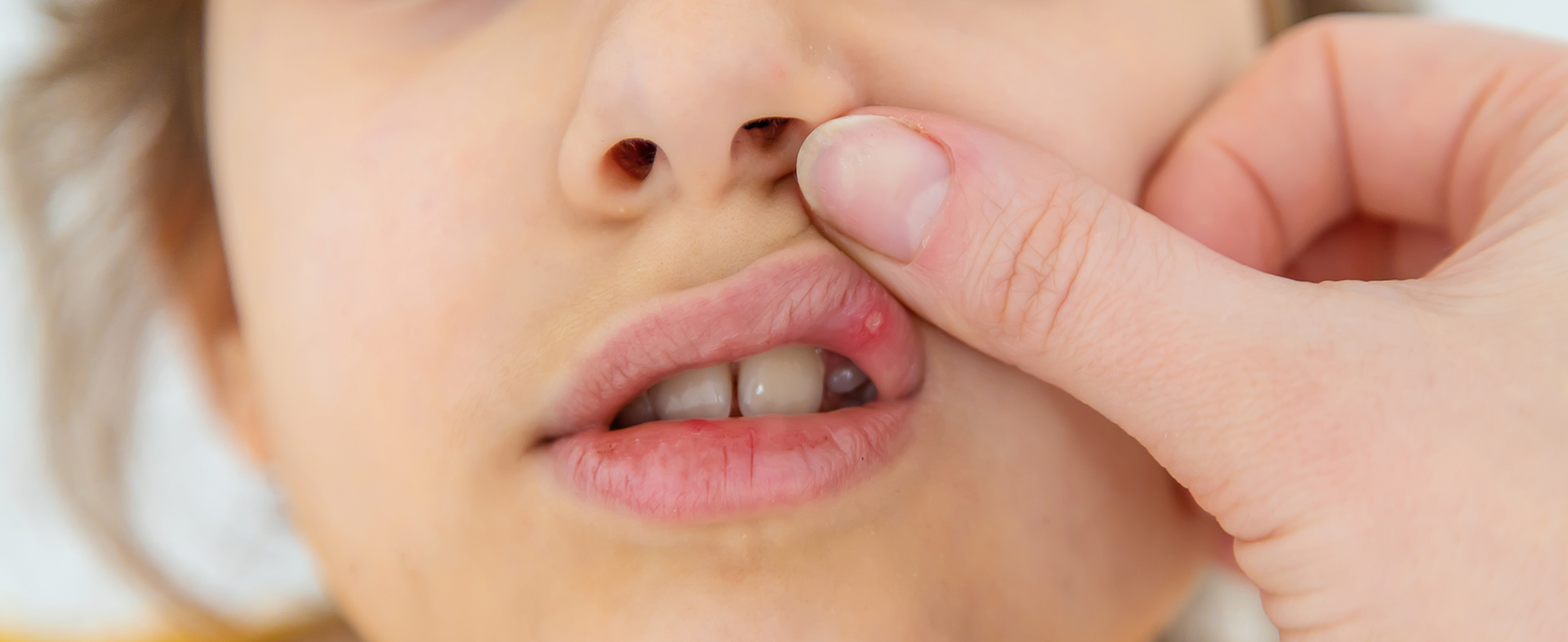Intraoral Lesions (Oral Wounds, Aphthae) are wounds that make it difficult and restrictive to eat and speak.
Intraoral lesions (mouth sores, aphthae)
Intraoral Lesions (Oral Wounds, Aphthae) are wounds that make it difficult and restrictive to eat and speak. The most common and recurrent one is recurrent aphthous stomatitis (RAS). Aphthae are small, white-colored, red-limited and painful lesions that occur on the cheek and lip mucosa, tongue, soft palate, pharynx, and gingiva. A few days before the wounds appear, mild itching occurs in the area where it will occur. They exist in three forms as minor aphthae, major aphthae and herpetiform aphthae. They are not contagious. It is more common in women. It is seen in approximately 20% of the population. It is often confused with herpes but has nothing to do with herpes. Herpes are painful, fluid-filled blisters caused by the herpes simplex viruses. Aphthae are not caused by viruses.
Factors causing the formation of aphthae (intraoral wound):
- genetic transmission
- Accidental biting of the inside of the cheek or lip and tongue
- brushing teeth hard
- Not paying attention to oral hygiene
- Improperly fitted dentures
- Stress
- Certain foods and beverages (such as salty-spicy foods, vinegar, citrus fruits, tomatoes)
- Some drugs (such as ACE inhibitors, antirheumatic drugs)
- Weakening of the immune system
- Cigarette, cigar, tobacco use
- Consuming extremely hot or cold foods and drinks
- some toothpastes
- Hormones
- Deficiency of B vitamins, iron or folic acid
- malignant diseases
- Behcet 's disease
- AIDS
- food allergy
- Helicobacter pylori
- Tiredness
Aphthous (Intraoral lesion) treatment:
Treatment is carried out by eliminating the underlying cause. Apart from that, it is aimed at reducing the symptoms. Maintaining oral hygiene, using soft toothbrushes, mouthwashes with chlorhexidine, local or systemic corticosteroids, oral creams, using B vitamins, paying attention to diet, avoiding hot, acidic and irritating foods, avoiding menthol candy-gum-toothpastes, eating Applying anesthetic creams prepared for the mouth to the aphthae area first may help reduce the symptoms. Antibiotics do not help. Aphthae pass in about 5-10 days. Sometimes healing of an aphthae is followed by the formation of a new aphthae. The number of afts can be more than one at the same time. A doctor should be consulted for weeks not exceeding two weeks.

 TR
TR DE
DE RU
RU




